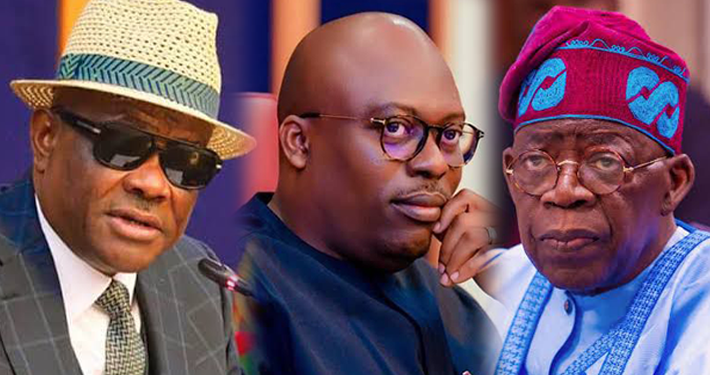The Federal Government has deployed 10,000 personnel of the Nigeria Security and Civil Defence Corps (NSCDC) to combat pipeline vandalism in the Niger Delta following a series of explosions at oil installations in Rivers State.
NSCDC spokesperson Afolabi Babawale confirmed the deployment on Wednesday, stating that the operatives have been tasked with safeguarding critical infrastructure and curbing economic sabotage.
“The NSCDC warns against destruction and vandalism of critical national assets. Over 10,000 operatives have been deployed to collaborate with other security agencies to ensure peace and security,” Babawale stated.
Emergency Rule Sparks Outrage
The deployment comes amid political unrest in Rivers State following President Bola Tinubu’s controversial declaration of emergency rule. In a national broadcast on Tuesday, Tinubu announced the suspension of Governor Siminalayi Fubara, his deputy Prof. Ngozi Odu, and the Rivers State House of Assembly.
He also appointed retired Vice Admiral Ibok-Ette Ibas as the sole administrator of the state for an initial six-month period. Ibas was sworn in at the Aso Rock Villa on Wednesday.
Prior to the emergency declaration, Rivers State had been in political turmoil, with tensions escalating after the state assembly, led by Speaker Martin Amaewhule, moved to impeach Fubara. The crisis deepened with three explosions within two days, allegedly linked to threats from Ijaw groups opposing the impeachment.
Security Clampdown in Rivers
In response to the unrest, security forces have increased their presence in Port Harcourt, with soldiers seen patrolling key locations, including the Government House. Reports indicate that Governor Fubara vacated the premises, though his whereabouts remain uncertain.
An aide to the governor, speaking on condition of anonymity, revealed that more soldiers have been deployed.
“More soldiers are entering the Government House. Over 15 arrived this afternoon, believed to be an advanced team for the Sole Administrator,” the aide disclosed.
Meanwhile, security operatives arrested a suspect linked to the Sunday explosion at the Trans Niger Pipeline in Aluu. Officials confirmed that a vandal was found dead at the blast site, while another suspect is now in police custody.
National Assembly to Debate Emergency Rule
The National Assembly is set to debate the legality of Tinubu’s emergency rule declaration today. Tensions flared in the House of Representatives on Wednesday, with lawmakers divided over the move. A letter from the President addressing the situation was expected to be read but was delayed.
The decision to suspend the state’s democratic structures has drawn widespread criticism from opposition parties, civil society organizations, and labour unions.
Opposition, Labour Unions Reject Tinubu’s Move
The Peoples Democratic Party (PDP) condemned the President’s actions, calling them unconstitutional. PDP National Publicity Secretary, Debo Ologunagba, insisted that Fubara remains the legitimate governor of Rivers State.
“The Nigerian Constitution does not grant President Tinubu the authority to declare a state of emergency or suspend a governor. The only legal means to remove a governor is through impeachment, resignation, death, or incapacitation,” Ologunagba said.
Former Bayelsa State Governor and senator, Seriake Dickson, also criticized the move, calling it a “power grab” and vowing to mobilize lawmakers against it.
Labour unions, including the Nigeria Labour Congress (NLC) and the Trade Union Congress (TUC), also rejected the decision. In a joint statement, NLC President Joe Ajaero and TUC President Festus Osifo described the suspension of Rivers State’s government as an attack on democracy.
“This reckless move should deeply concern every Nigerian. No democratic society can thrive where elected leaders are arbitrarily removed at the whims of the President,” the statement read.
FG Defends Decision
Defending the emergency rule, Attorney-General of the Federation Lateef Fagbemi argued that Tinubu’s action was necessary to prevent a “total collapse” of governance in Rivers.
“The President took a bold decision to restore order. Without this intervention, the governor would have been impeached, and the state would have descended into chaos,” Fagbemi stated.
He also dismissed claims that the Minister of the Federal Capital Territory, Nyesom Wike, played a role in the crisis, urging critics to focus on the broader security concerns affecting the state.
As tensions rise, all eyes are now on the National Assembly, where lawmakers will determine whether to approve or reject the emergency rule in Rivers State.
























